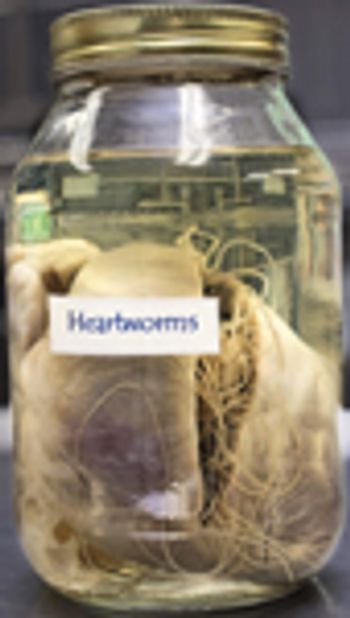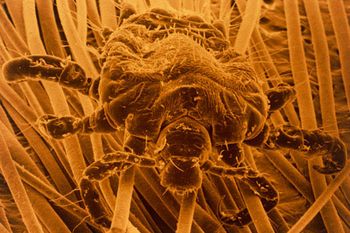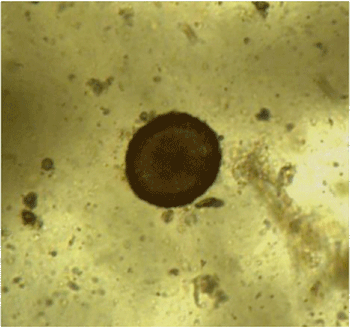
Tick-borne diseases of dogs and cats causing vasculitis leading to multisystemic dysfunction often characterized by thrombocytopenia and hyperglobulinemia.

Tick-borne diseases of dogs and cats causing vasculitis leading to multisystemic dysfunction often characterized by thrombocytopenia and hyperglobulinemia.

Protozoal disease (genus: Babesia) of dogs and cats where merozoites (piroplasms) infect RBCs.

Parasites are major causes of respiratory tract disease in the dog and cat. Recent advances in therapy of these diseases have been made providing the practicing veterinarian with a more rational treatment modality. This review will discuss the biology, diagnosis, disease, and treatment of respiratory parasites (protozoan, nematode, trematode, and arthropods) of the dog and cat emphasizing chemotherapeutics.

Infection occurs when infected feces of a vector (Triatomin?, commonly called kissing or assassin bugs) are deposited in a wound (bite site of vector) or mucous membrane, or when a dog eats an infected vector (shown to occur in opossums and raccoons). Raccoons fed infected meat do not get infected so dogs probably not infected by eating meat from intermediate hosts in which the organism is sequestered in muscle. Transmission by contaminated blood transfusion also occurs.

National report - Discussions are ongoing regarding a consensus statement in the works regarding heartworm efficacy.

Filarial nematode infection of dogs and cats – Dirofilaria immitis – adults (female worms up to 30 cm in length) live in pulmonary arteries causing respiratory, cardiac, and in some cases, renal disease.

Forget vampires. Meet five blood-sucking creatures-veterinary edition. From fleas to lice, be warned: They want to suck clients' and pets' blood!

Do dogs recover from tick paralysis?

Find out how to avoid a sticky mess from sugar flotation solution.

Dr. Joyce Knoll provides her advice for this reader query.

Dr. Kevin Kazacos helps you pinpoint this parasite.

Summer heat, floods could spawn heightened parasitic disease risks in Midwest

Dig deeper when clients decline parasite preventives.

When it comes to purchasing veterinary drugs online, buyer beware, FDA says.

A consensus statement is being crafted to address growing concerns over resistance to heartworm preventives.

Which parasite is bugging this colt?

A workshop at the Centers for Disease Control and Prevention brought together specialists in veterinary parasitology and human internal medicine and vector-borne infectious disease to address Lyme borreliosis.

Put on a heartworm-test magic show for clients

A reader writes in concerning a few more wildlife zoonoses practitioners should be aware of.

A comprehensive overview of tick-transmitted infectious diseases. (1 CE credit)

A national overview of parasites and the danger they pose to companion animals. (1 CE credit)

Why you should be concerned about this parasitic disease, no matter where you live.

Lenexa, Kan. -- CEVA is buying a majority share in Summit VetPharm.

Since its eradication in 1988, the United States is beginning to see more cases of equine piroplasmosis, a blood-borne parasitic disease.

Don't let clients throw in the towel when it comes to learning a new skill.